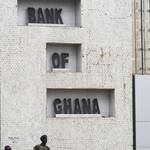The Bank of Ghana (BoG) has recorded a loss of GH₵10.5 billion for the financial year ending 2023, primarily due to a substantial rise in total interest expenses on open market operations, which surged by GH₵6.7 billion during the period.
These increased expenses were necessary to manage excess liquidity in the economy and support the disinflation process as part of a broader macroeconomic adjustment program.
The GH₵10.5 billion loss represents a significant improvement compared to the GH₵60.9 billion loss in 2022, which was due to the impairment of its holdings of marketable government stocks and non-marketable instruments during the Domestic Debt Exchange Programme (DDEP).
Liabilities exceed assets by GH₵65.36bn
Per the Bank’s 2023 Annual Report and Financial Statement, BoG and its subsidiaries had total liabilities exceeding total assets by GH₵65.36 billion.
GH₵8.8bn operating income
The report indicated that in 2023, total operating income of the Bank and the Group increased by 47.3% to GH₵8.8 billion.
This increase in operating income was driven to a large extent by interest earned on the Bank’s investments in securities and bonds held abroad, fines imposed on institutions for regulatory breaches, and fees and charges.
GH₵19.2bn operating expenses for 2023
The report noted that the total operating expenses for 2023 amounted to GH₵19.2 billion, a significant decline from GH₵66.9 billion in 2022.
Per the financial statement, this decrease was attributed to lower impairment charges on loans and advances and the Bank’s holdings of Government of Ghana securities.
GH₵54.5bn impairment charges, govt bonds
In 2022, the two-line items impairment charges on loans and advances and the Bank’s holdings of Government of Ghana securities accounted for GH₵54.5 billion in expense charges on account of the Domestic Debt Exchange Programme.
BoG noted that the open market operations, which accounted for a significant portion of the loss, yielded positive results.
GH₵8.8bn income
According to the report, total group income generated in 2023 was GH₵8.8 billion
Open market operations cost GH₵8.4bn
However, total costs associated with the conduct of monetary operations which stood at GH₵1.7 billion in 2022, increased to GH₵8.4 billion in 2023.
The positive policy solvency factor of GH₵400 million in 2023 indicates that the Bank continues to be policy solvent, just as it was in 2022 when a policy solvency factor of GH₵4.27 billion was recorded.
Mop up of excess liquidity
According to the report, the increase in costs associated with open market operations for 2023 was driven largely by the need to mop up excess liquidity in the economy in 2023 and to support the disinflation process envisaged in the overall macroeconomic adjustment programme.
Slowing down inflation
The Bank’s 2023 Annual Report and Financial Statement disclosed that “the aggressive mopping up operations contributed to slowing down inflation to 23.2% by the end of 2023, significantly down from 54.1% at the end of 2022.”
No amount was set aside for reserve appropriation as the reserve amount was in deficit as of December 31, 2023.
The Central Bank emphasized its policy solvency, highlighting its ability to generate sufficient realized income to cover the costs associated with monetary policy operations.
The Board of Directors and Management view the policy solvency outcome for 2023 as consistent with the perspective held in 2022.
In addition to the expected favorable impact of macroeconomic conditions on the financial position of the Bank, the Board is continuing to take actionable steps to ensure a recovery and build back a positive equity position within the medium to long term. These steps will include refraining from monetary financing of the Government of Ghana’s budget.
In this regard, the Bank will continue to adhere to the terms of the Memorandum of Understanding on zero financing of the budget signed between the Bank of Ghana and the Ministry of Finance on April 26, 2023.
BoG will also continue with policy measures aimed at optimizing the Bank’s investment portfolio and operating cost mix to bolster efficiency and profitability.
It will also sign a Memorandum of Understanding to secure early recapitalization of BoG in the medium to long term.
Within the context of the second review of the ongoing International Monetary Fund (IMF) programme, which concluded on April 12, 2024, the impact of the Domestic Debt Exchange Programme on the balance sheet of BoG was discussed extensively, and broad consensus was reached among the Ministry of Finance, BoG, and the IMF on early recapitalization of the Central Bank.
A Memorandum of Understanding between BoG and the Ministry of Finance on how the recapitalization is to be executed is expected to be signed by the end of the third quarter.
The Board expects that the steadfast implementation of these policy steps, alongside fiscal rectitude, continued maintenance of a tight monetary policy stance, and the pursuit of critical structural reforms to underpin sustainability of progress made so far, will provide enough basis for continued operational policy efficiency and the existence of the Bank of Ghana for the foreseeable future.
The report stated that the Bank would continue to operate efficiently and effectively on a going concern basis, striving to achieve its policy mandates despite the significant loss recorded.
This financial performance underscores the challenges faced by the Bank of Ghana in its efforts to stabilize the economy and manage inflationary pressures.
The Central Bank remains committed to its policy mandates and aims to navigate the economic landscape with prudence and resilience.
- Wednesday, April 16, 2025 Newspaper Headlines - 16 April 2025
- Road crashes: 752 killed in 3 months, a 23.5% rise - 16 April 2025
- IGP host Guard of Honour for newly appointed CDS - 15 April 2025




